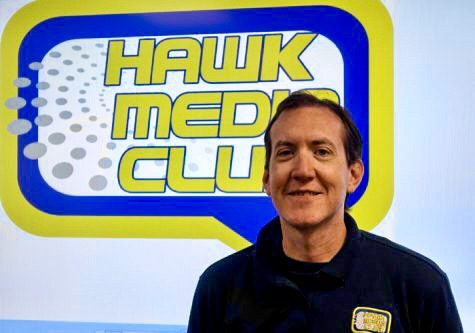Write your résumé the way employers want it
Writing résumés and looking for a job can be a daunting task for anyone. This is especially true for graduating students without extensive work history. There are countless books and online guides for how to write a “good” résumé. HCC has seminars and classes that teach students what to do and what not to do. Eight students recently went to a conference where one of the speakers talked about job searches and résumé writing.
The 58th Annual Awards Conference for the Florida College System Activities Association was held in Orlando from Oct. 11-14. HCC students won awards for photography and poetry. They also met students, professors and recruiters from USF and UF. During seminars, attendees learned how to write good stories, take good pictures, develop online content, how to apply for university scholarships and how to market themselves.
Michael Koretzky, editor and content director for Debt.com and Consolidated Credit, led a seminar entitled “Shark Meat: A Session for Those with Short Attention Spans.” The session was a sample of what Koretzky presents in other lectures. At the conference, he talked about presentation preparation, proper grammar and résumé writing.
Koretzky gives advice on résumés that sometimes differs from what HCC students (and students at other colleges) hear in class. For example, most students who have not had years of work experience are told to put their education at the top of the résumé. The reason for this is that employers know the students do not have as much practical experience. However, the college courses are geared towards the career. Koretzky says to focus on actual experience rather than education.
Experience should be very specific. Advice Koretzky gives is to list complete names of awards and honors on résumés. He says to put minute details about any experience rather than include courses or school clubs that do not pertain to the career.
Another difference in what Koretzky advises than what people are taught in school concerns the objective section of the résumé. Most classes tell people to put the objective at the top of the résumé so employers will know the applicant wants that job. They do say to be specific for each job and to not have a blanket objective. Koretzky, however, says the objective is not necessary since it should be in the cover letter.
Koretzky also stress that people should not use templates to create their résumés. He says the human resource department at his company knows when résumés come from a certain school and even class because the instructor has taught the same format for years. He says to be original even in the résumé in order to stand out and be noticed. However, it should be said that the Career Centers at HCC have templates for students to use. John Erickson, a recent graduate of the Advanced Water Treatment program in Plant City, used one of the Career Center’s templates. He says he received three job offers within weeks of finishing his last semester.
The reference section is one where some people say to have something similar to “references available upon request” or to omit the section completely. Koretzky recommends having the section with the résumé.
The main point where Koretzky agrees with most common wisdom is that people should keep résumés short. He says to not have multiple pages when one or two will suffice.
For those interested in learning more, Koretzky will be speaking to students on the Ybor campus in the near future. To find out when, contact Dr. Gaspar at rgaspar@hccfl.edu.

Jason Turner is a Staff Writer for The Hawkeye
Jason Turner grew up and went to school in New Mexico. While in school, he worked at the radio station...
